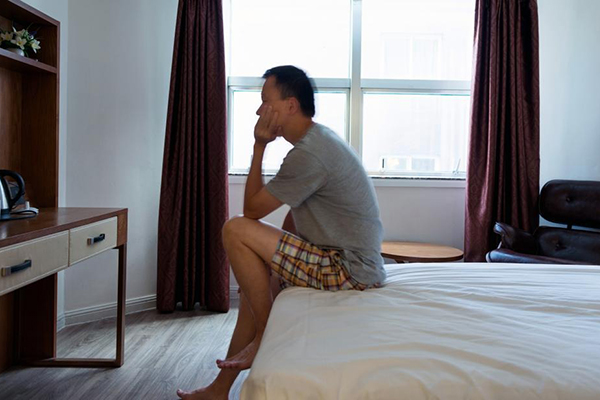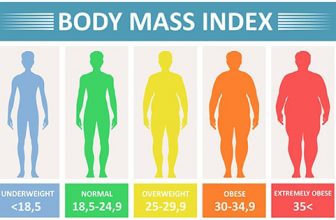
When I was younger, I remember hearing whispers in school locker rooms that masturbation could somehow “steal” inches from your final height. Maybe you’ve heard the same thing—it’s one of those puberty myths that just never seems to die. And honestly, I get why it sticks. Adolescence is messy: your body’s changing, hormones are firing, and you’re trying to figure out what’s normal while dealing with a flood of half-truths from friends or the internet.
Here’s the thing though—masturbation has zero effect on human growth or height development. Medical research is clear on this. Height is driven by bone growth, the pituitary gland’s regulation of growth hormone, and yes, hormones like testosterone. But sexual behavior—whether you masturbate or not—doesn’t interfere with those processes. If it did, doctors would’ve flagged it decades ago.
In my experience writing about puberty and sexual health, I’ve found it’s often not the “big scary facts” that trip people up, but the quiet, lingering myths. So let’s break this one down properly, looking at what science says about puberty, hormones, and growth. That way you’ll know exactly what matters—and what doesn’t—when it comes to your height.
The Myth: Masturbation and Height Loss
I can’t tell you how many times I’ve run into this one. The idea that masturbation could somehow stunt your height goes way back—long before modern medicine had the tools to measure hormones or track bone growth properly. If you dig into history, you’ll see Victorian-era doctors warning parents that “self-abuse” would weaken the body, damage the pituitary gland (they didn’t really understand it back then), and even stop kids from reaching their full size. It wasn’t science—it was superstition mixed with moral panic.
A lot of these beliefs were fueled by religious teachings and cultural taboos. Masturbation was framed as sinful or shameful, so myths about growth loss became a way to scare young people into stopping. Add in the spread of misinformation—pamphlets, sermons, later even early “health guides”—and you had generations growing up with guilt around something completely natural.
In my experience studying height growth, I’ve noticed how powerful stigma can be. A myth like this doesn’t just vanish; it lingers because it taps into fear. And honestly, that’s why so many teens still ask me today: “Does masturbation affect my height?” Well, the roots of that question are centuries old, and understanding them helps us finally put the myth to rest.

The Science: Does Masturbation Affect Growth?
When I first started digging into this question years ago, I’ll admit—even I wondered if there was something hidden in the research that might connect masturbation to height. After all, puberty is a storm of changes: testosterone surges, bone growth accelerates, the pituitary gland is firing signals nonstop. It seems logical at first glance that sexual activity might somehow interfere with all that. But here’s what I’ve found after going through medical studies and spending years writing about height development: there’s no scientific evidence that masturbation affects growth in any way.
Let me break it down. Masturbation triggers the release of dopamine and endorphins—your brain’s natural “feel good” chemicals. It also involves semen production and sexual release, which are normal parts of the reproductive system. None of these processes deplete growth hormone, alter bone growth plates, or disturb endocrine stability. Testosterone levels, for example, may rise slightly during arousal and fall after orgasm, but they return to baseline quickly. Long-term levels—the ones that actually matter for puberty and height—remain completely unaffected.
What’s interesting (and kind of ironic) is that many of the fears come from misunderstanding hormones. People hear “testosterone” and assume any fluctuation must impact growth. But your body is smarter than that—it regulates hormone balance tightly. If masturbation really stunted height, doctors would’ve documented it decades ago in endocrinology research. Spoiler: they haven’t.
In my experience, the bigger issue isn’t biology—it’s anxiety. I’ve had countless teens ask me, almost in a whisper, “Does masturbating make me shorter?” That stress alone can feel heavier than the act itself. And here’s what I tell them: you can relax. Your height is driven by genetics, nutrition, sleep, and overall health—not by whether or not you masturbate.
So, if you’re worried about your growth, focus on the real levers—good diet, regular exercise, enough rest. The science is clear: masturbation plays no role in holding you back.

Masturbation and Hormones Explained
Back when I first started writing about height growth, I kept running into the same confusion: people thought that because masturbation involves sexual release, it must somehow hijack hormones and mess with puberty. I get why the myth sticks—puberty already feels like your body is running wild, and hormones like testosterone and estrogen are usually the first suspects when something feels “off.” But here’s the thing: masturbation doesn’t throw those hormones out of balance.
Testosterone, for example, rises and falls naturally throughout the day. After sexual release, it dips for a short while and then goes right back to baseline. Estrogen in girls and luteinizing hormone in both sexes work the same way, following a tight feedback loop that the endocrine system controls. Growth hormone—the one that actually drives bone lengthening and height increase—operates independently of sexual behavior. I’ve gone through countless medical papers on this, and none show masturbation interfering with the endocrine cycle in a way that affects growth.
Now, you might feel different after masturbating—tired, relaxed, maybe even guilty if you grew up hearing negative things about it. But that’s more about dopamine and endorphins, the brain’s “feel good” chemicals, than about any disruption in reproductive health. In fact, your hormonal regulation is remarkably stable. Your body is designed to handle sexual maturity without derailing growth.
In my experience, what really hurts teenagers isn’t masturbation—it’s the anxiety tied to these myths. Worrying that every release will shave off half an inch of potential height is far more damaging than the act itself. So here’s my takeaway: if you’re aiming to maximize growth, your focus should be on sleep, nutrition, and posture—not whether or not you masturbate. The hormones that control puberty and height are on their own cycle, and they won’t be thrown off by normal sexual behavior.
What Really Affects Growth
Whenever someone asks me, “How can I grow taller?” I can almost guess the myths they’ve heard—everything from magic pills to weird stretching hacks. But in my years focusing on height growth, I’ve learned that the real levers of development are far less flashy: genetics, nutrition, sleep, and consistent physical activity.
Genetics set the framework. If your parents are tall, chances are you’ll inherit a good deal of that. But here’s the important part—genetics aren’t the only factor. I’ve seen kids with tall parents who ended up shorter than expected because of poor nutrition or chronic illness. On the flip side, I’ve seen people maximize their genetic potential by doing the basics right.
Nutrition is huge. Calcium intake, vitamin D, and protein directly influence how well your bones and growth plates develop. If your diet is loaded with junk and missing these essentials, you’re limiting what your body can do. (I still remember a phase in my teens where I lived on instant noodles—bad idea. My energy tanked, and I know it slowed my growth at the time.)
Sleep might sound boring, but growth hormone surges during deep sleep cycles. If you’re staying up until 3 a.m. gaming every night, you’re cutting into the very window when your body does the hard work of height development. I learned the hard way in college—pulling all-nighters left me feeling sluggish and, in hindsight, probably stole some of my growth potential.
And then there’s exercise. Regular physical activity—basketball, swimming, even just running around outside—stimulates bone strength and posture. Good posture alone can make you look taller and also prevents you from “losing” height through spinal compression.
So, here’s my takeaway: don’t waste time worrying about things like masturbation myths or miracle supplements. Focus on the fundamentals—nutrition, sleep, and exercise—because those are the real factors that decide how tall you’ll stand.
Psychological Impact of Masturbation Myths
I still remember one teenager who emailed me after reading my articles on height growth. He said, “I’m scared I ruined my growth because I’ve been masturbating since 13.” That hit me hard, because it wasn’t about biology—it was about the emotional weight he’d been carrying. And that’s exactly what these myths do: they don’t shrink your body, but they can shrink your confidence.
Believing that masturbation stunts height often breeds anxiety and shame. I’ve seen young people feel guilty over something completely natural, almost like they’ve broken some hidden rule of puberty. That guilt snowballs into stress, and stress feeds into low self-esteem. In some cases, I think the myth does more harm to mental health than the act ever could. You see, misinformation plants this constant background worry: “Am I messing up my future?” That thought alone can keep someone up at night.
In my experience, the best antidote is reassurance—explaining the science clearly and reminding them they’re not alone in these fears. When the myth lifts, so does the emotional burden. And honestly, once you clear away that guilt, it’s amazing how much space opens up for self-confidence and healthier growth (both physical and mental).
Healthy Sexual Development and Education
One thing I’ve learned, after years of talking with teens (and honestly, sometimes worried parents too), is that silence creates more confusion than the act itself. Masturbation is a normal part of puberty, yet so many young people grow up thinking it’s dangerous, dirty, or—my field—something that could stunt height. That’s not just wrong, it’s harmful. A healthier approach is rooted in open communication and proper sexual health education, the kind the World Health Organization actually encourages: honest, age-appropriate, and grounded in science.
Now, here’s the interesting part—when kids are given real information, guilt and shame start to fade. Instead of anxiety about whether semen loss is draining “growth energy” (yes, I’ve heard that one more times than I can count), they learn about body awareness, hormone balance, and safe practices. In my experience, the shift from fear to acceptance is huge for mental well-being.
I think what works best is reassurance: masturbation doesn’t affect height, it doesn’t derail puberty, and it doesn’t make you less healthy. What it can do—if framed properly—is help you understand your own body better. And that self-acceptance is every bit as important to adolescent health as good nutrition or sleep.
When to Seek Medical Advice
One of the first lessons I learned in this field is that not all growth concerns are myths. While masturbation doesn’t affect height, there are genuine medical reasons why someone might not be growing as expected. And in my experience, the hardest part for parents and teens alike is knowing when worry is justified and when it’s just unnecessary stress.
Here’s the thing—if puberty seems unusually delayed (for example, no visible signs by 14 in boys or 13 in girls), it may be worth checking in with a pediatrician. Sometimes the issue is as simple as “late bloomers,” but other times, hormonal imbalances or growth disorders are at play. An endocrinologist can run tests on growth hormone levels, thyroid function, or even look for conditions that affect the pituitary gland. I’ve seen cases where short stature turned out to be linked to something treatable, like a vitamin deficiency or undiagnosed health condition.
What I’ve found works best is this: don’t panic, but don’t ignore persistent concerns either. A medical checkup offers clarity. And honestly, that reassurance—whether everything is fine or something needs attention—is far better than months of second-guessing. If in doubt, get it checked. It’s not weakness, it’s wisdom.
Final Thoughts: Separating Myths from Science
If there’s one thing I want you to walk away with, it’s this: masturbation does not stunt growth—period. I’ve spent years studying height development, looking at everything from genetics and nutrition to hormonal disorders, and I can tell you with absolute certainty—this old myth has no place in real science. Growth comes from factors like your pituitary gland, bone plates, sleep quality, and diet. Masturbation? It’s just a normal part of sexual health, no different in impact than laughing or exercising.
Now, I get it—these myths stick because they play on fear. I’ve spoken with plenty of teens who felt guilty, even ashamed, because they thought they were “hurting” their future height. But what I’ve found, time and again, is that once they understand the truth, that weight lifts. Confidence replaces worry. And that’s the part I love most—watching someone shift from anxiety into clarity.
So, here’s what works: trust science, not superstition. Take care of your body with proper rest, nutrition, and movement. And remember—your growth won’t be derailed by masturbation. What really matters is developing a healthy perspective about your body and puberty, because that mindset will carry you further than any myth ever could.






